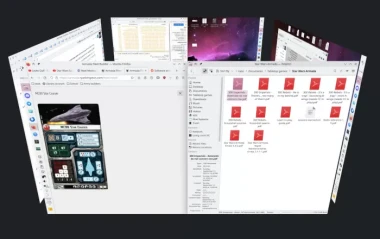KDE's Nate Graham On X11 Being A Bad Platform & The Wayland Future
Well known KDE developer Nate Graham is out with a blog post today outlining his latest Wayland thoughts, how X11 is a bad platform, and the recent topic of “Wayland breaking everything” isn’t really accurate.
“In this context, “breaking everything” is another perhaps less accurate way of saying “not everything is fully ported yet”. This porting is necessary because Wayland is designed to target a future that doesn’t include 100% drop-in compatibility with everything we did in the past, because it turns out that a lot of those things don’t make sense anymore. For the ones that do, a compatibility layer (XWayland) is already provided, and anything needing deeper system integration generally has a path forward (Portals and Wayland protocols and PipeWire) or is being actively worked on. It’s all happening!”








Add comment